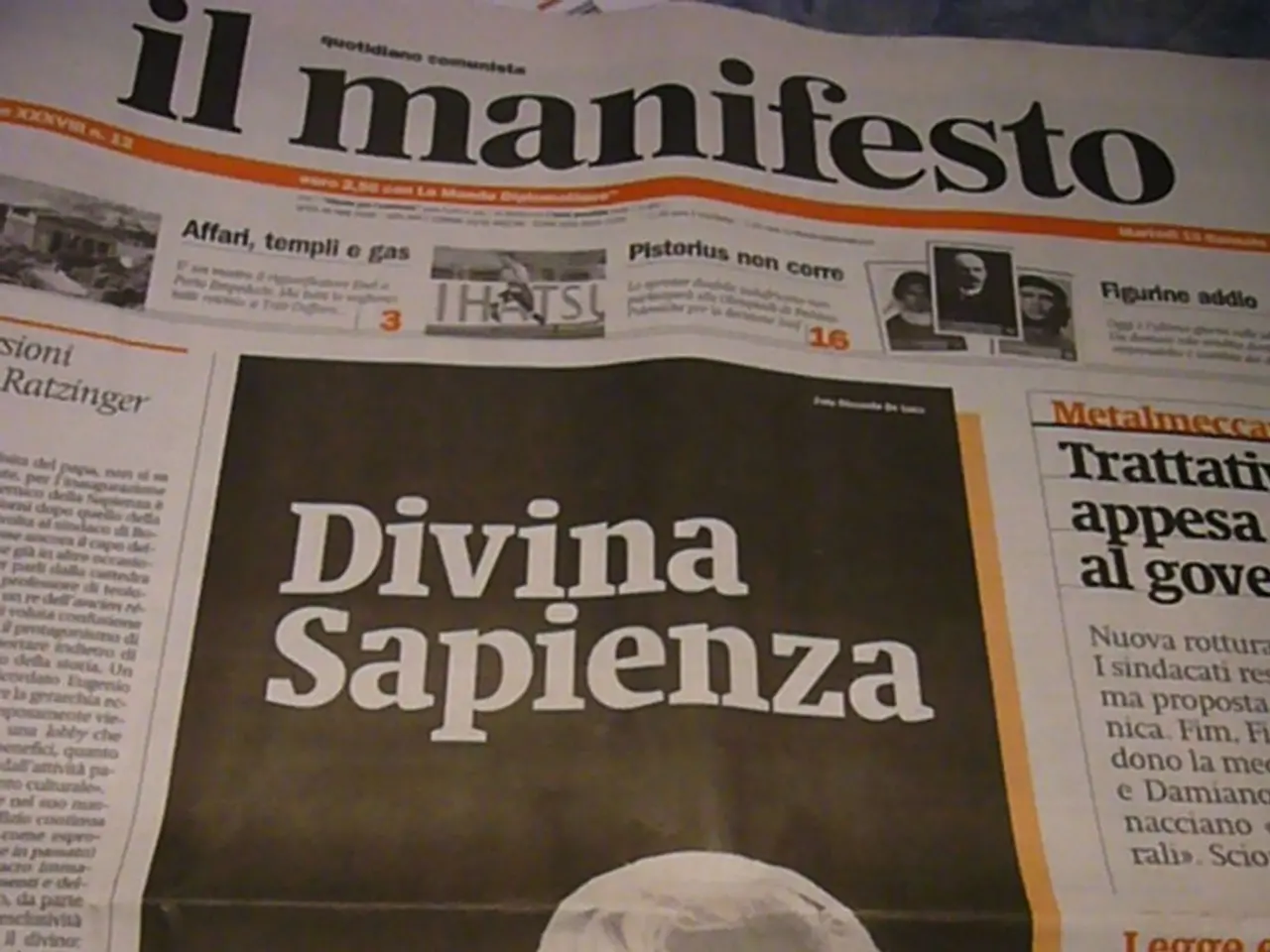Fundraising efforts for Trump's presidential library are being criticized for lacking restrictions, argued detractors
In the realm of American politics, the funding of presidential libraries has become a subject of increasing scrutiny and debate. A campaign finance lawyer, Brett Kappel, has highlighted the opaque and unregulated nature of these private foundations that support the libraries.
This concern was evident during President Bill Clinton's tenure, when he faced criticism over donations to his library fund, particularly a $450,000 donation from Denise Rich, ex-wife of billionaire businessman Marc Rich, who was pardoned by Clinton.
Fast forward to the present day, and the proceeds of four large legal settlements with President Trump - from Meta, ABC News, X (formerly Twitter), and Paramount - are reportedly bound for his library fund, potentially totaling up to $63 million.
The first presidential library was established by President Franklin D. Roosevelt in 1938. Since then, these libraries have been built and maintained with a mix of private and federal funds. However, the lack of transparency surrounding donors to these libraries has been a recurring issue.
In an effort to address this, Senators Elizabeth Warren and Richard Blumenthal, along with three House members, are preparing to introduce a bill to regulate fundraising for presidential libraries. Known as the Presidential Library Anti-Corruption Act, the legislation aims to increase transparency and limit potential for abuse in presidential library fundraising.
Key provisions of the bill include:
- Prohibition on donations from lobbyists and foreign governments to prevent potential conflicts of interest or foreign influence. - A cap of $10,000 per individual while the president remains in office to limit the influence any single donor might have. - Quarterly public disclosures of all donations exceeding $200 to enhance transparency. - A ban on the personal use of any contributions made to a presidential library, ensuring funds are used for their intended purpose. - Fundraising for presidential libraries would be barred until the president leaves office, though nonprofits would be exempt from this restriction.
These measures are designed to address past controversies and ensure that presidential libraries are not used as conduits for undue influence or personal gain. The lack of transparency could raise the appearance of impropriety, according to Kappel.
The proposed bill comes as the future presidential library of President Trump faces scrutiny for a lack of visibility into the identities and potential interests of the donors. The Boeing 747 given to the U.S. Air Force by the Qatari royal family for President Trump's use, and later to be donated to his library, has also raised concerns.
Congress has tried, and largely failed, to pass legislation that would require organizations raising funds for presidential libraries to disclose donations since 2007. The Obama Presidential Foundation, for instance, discloses donors and donations over $200 on a quarterly basis on their website.
The proposed legislation, if passed, would bring much-needed transparency to the funding of presidential libraries, ensuring that the American public is well-informed about who is contributing to these institutions.
[1] https://www.congress.gov/bill/118th-congress/senate-bill/3308 [2] https://thehill.com/homenews/senate/3850773-warren-blumenthal-to-introduce-bill-to-regulate-presidential-library-fundraising/ [4] https://www.nytimes.com/2021/05/07/us/politics/trump-library-donors.html
- The funding of presidential libraries in the United States has been a subject of increasing scrutiny, with concerns about opacity, unregulated private foundations, and potential conflicts of interest.
- A bill, the Presidential Library Anti-Corruption Act, is being prepared to address this issue, aiming to increase transparency and limit the potential for abuse in presidential library fundraising.
- Key provisions of the bill include prohibitions on donations from lobbyists and foreign governments, caps on individual donations, quarterly public disclosures of major donations, a ban on personal use of contributions, and a ban on fundraising while the president is in office.
- The lack of transparency could give the appearance of impropriety, as was the case with past controversies involving donations to President Bill Clinton's library fund and potential donations to President Trump's library.
- If passed, the proposed bill would bring much-needed transparency to the funding of presidential libraries, ensuring that the American public is well-informed about who is contributing to these institutions. (References: [1], [2], [4])






